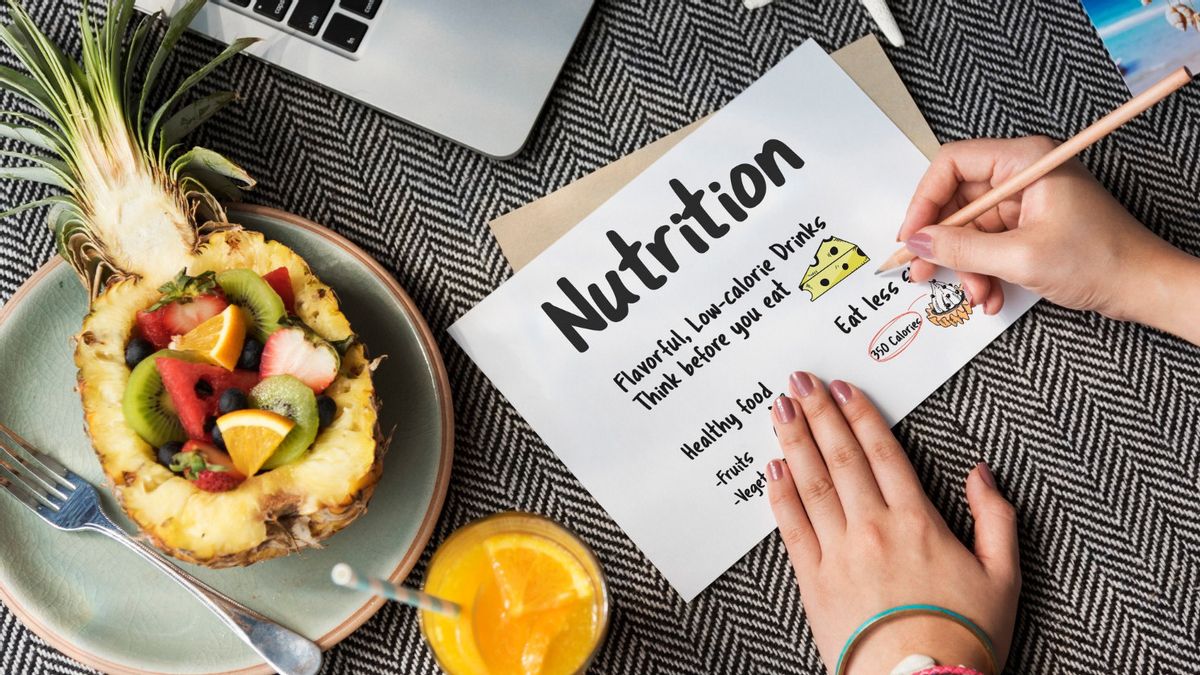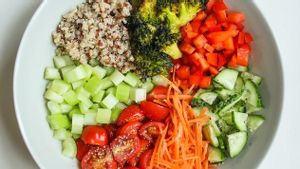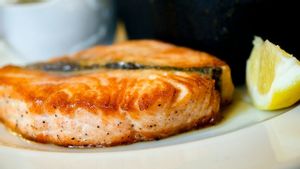YOGYAKARTA While on a diet, food portions and types of food are considered. This is very vulnerable to lack of nutrition, especially micronutrients. If you are on a diet, do not let the following nutritional deficiencies occur because they can cause problems with health.
Calcium requires muscles and bones. As you get older, the need for calcium is increasing. Pad is 19-50 years old, requires 1,000 milligrams of calcium and ages 51 and over requires 1,200 mg.
There are many ways to get more calcium, for example by consuming dark green vegetables, nuts, and seeds. You can also get about 300 milligrams of calcium from one portion of fatless yogurt, 8 ounces of calcium-enriched juice, and 8 ounces of soy milk or almond milk.
Fiber is good for avoiding constipation and lowering cholesterol In addition, fiber is also useful for lowering blood sugar levels. Fiber is also filling, low in calories, so it helps you lose weight. In a day, men aged 19-50 years need an intermediate fiber of 38 grams and at the age of 51 and above, requires 30 grams of fiber. Meanwhile, women aged 19-50 years, require 25 grams of fiber and age 51 to over 21 grams. Foods that contain a lot of fiber include beans, red beans, quinoa, vegetables, nuts, and seeds.
This nutrition is important for the eyes, immune system, genes, and others. Launching WebMD, Thursday, October 12, vitamin A can be obtained from carrots, sweet potatoes, labs, spinach, blewah, red peppers, broccoli, tomatoes.
In men and women aged 19 years and over, it requires a potassium of 4,700 milligrams per day. This nutrition is important to maintain muscles, nerves, and fluid balance. Kalium also increases bone strength and energy production.
If your blood pressure is high, ask a doctor or pharmacist before taking supplements that contain potassium. Because some drugs are deurtic, this makes you lose more potassium in the body.
How to get potassium from the diet menu, you can eat red beans (607 milligrams), raw spinach (829 mg), Greek yogurt (240 mg), orange juice (496 mg), cooked broccoli (457 mg), melon (431 mg), and medium-sized bananas.
Folic acid is a synthetic form of vitamin B folate that helps protect the body from certain types of anemia and contributes to cell production. Everyone, especially pregnant women, requires 400-600 micrograms of folic acid every day. To get folic acid, you can enter a number of diet menus. Among them, fragrance, lentil, spinach, broccoli, and orange juice.
Iron is responsible for transporting oxygen to cells and tissues throughout the body. For women, iron is important before planning pregnancy and during pregnancy. Men need 8 milligrams of iron per day. Women, need 18 milligrams every day at the age of 19-50 years. How to get iron, you can eat cooked beef, turkey, chicken thighs, cooked chicken thighs, and boiled eggs. For those of you who are on a vegetarian diet, you can eat soybeans, edamame, spinach, and red beans.
Vitamin D must be met with daily needs, because this vitamin increases bone growth and calcium absorption. Too little vitamin D, can cause soft bones in children and congested bones in adults. Some experts recommend getting vitamin D from your diet rather than relying on sunlight.
To get vitamin D, you can eat fish and egg yolks. Other foods enriched in vitamin D include milk, yogurt, orange juice, and several types of contracts.
SEE ALSO:
Those are the seven nutrients that must be fulfilled during the diet. You can enter the nutrients rich above alternately but still take into account the overall balance.
The English, Chinese, Japanese, Arabic, and French versions are automatically generated by the AI. So there may still be inaccuracies in translating, please always see Indonesian as our main language. (system supported by DigitalSiber.id)


















